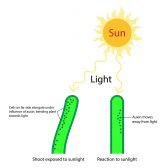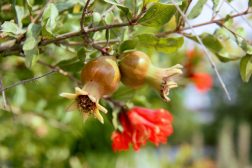root
(Science: botany) The water– and mineral-absorbing part of a plant which is usually underground, does not bear leaves, tends to grow downwards and is typically derived from the radicle of the embryo.
See: adventitious.
(botany) the usually underground organ that lacks buds or leaves or nodes; absorbs water and mineral salts; usually it anchors the plant to the ground.The part of a tooth that is embedded in the jaw and serves as support.The part of a plant that is found below ground level, responsible for the uptake of water and minerals from the surrounding soil. There are three main types of root, namely primary, secondary and adventitious, where the primary root forms the main backbon.
Dictionary > Root






